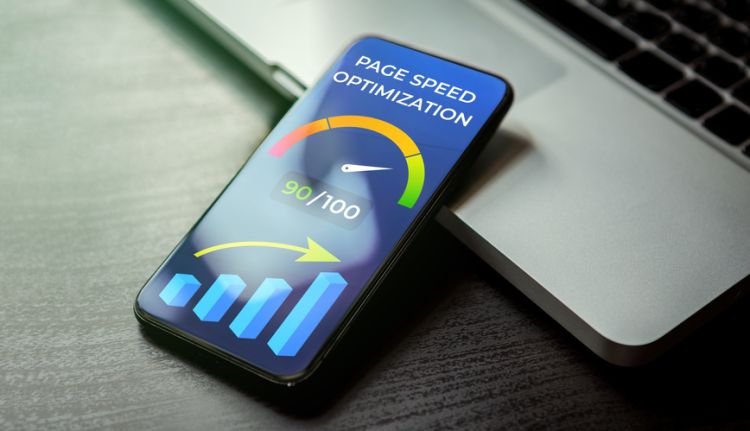
Gone are the days when large devices ruled the web as Google officially began testing for Mobile-First Indexing. Here’s how you can optimize for it.
Google has prioritized its indexing for mobile, as it’ll be the first way a website is ranked in the search engine. This also means that when your website isn’t optimized for mobile first, Google falls back on your site’s desktop version. This can make your site’s formatting change on mobile, and the ranking will also slip. Before you call upon a marketing agency for small businesses, we’re going to give you four tips to get in line for Google’s mobile-first indexing.
1. Get your website faster
Digital marketing can be a tricky business when it comes to adapting. The sooner that you do it, the better. And just as it’s all about speed in adapting, speed also matters regarding your website. When users are on mobile, they expect performance. And so does Google. Luckily, there are some ways you can make your site run faster.
Optimize your images
Always make sure that your images are the right size. When they’re too big, they can slow your website down considerably. The less the site has to load, the better. Make the puzzle pieces fit.
Pay attention to website caching
Website caching is your best friend when it comes to speed. It makes it so that all the information is already there to load up. It can make a big difference between a slow-running site and one that runs smoothly on mobile because it leads to less work for the site. Without caching, it’s much like walking into a library without any sections.
Cut down on redirects
Just like in real life, when you’re walking through a building to get to a room, you don’t want too many twists and turns. The same applies to websites. Redirects slow downloading and make the user experience worse. The fewer users need to click, to get where they want to go, the better. Try to organize everything in the appropriate pages because when a user gets lost, they don’t hang around. They go to another website altogether.
Minify the code
It’s something that marketing firms for small businesses have learned early on. A lot of code may look complex, but it doesn’t have to be. When it comes to code, only what’s necessary should be there. Extras will only slow things down.
2. Stop Blocking the site
Whether it’s a small business advertising agency or a big one, they already know that what used to work in SEO has changed. And one of those things is blocking. It used to be helpful to block things like Javascript and CSS, or even images because of speed. But now that devices like smartphones have more power, this is an outdated and unnecessary practice. Don’t worry about blocking anymore so that Googlebot can work efficiently.
3. Design matters
A good tip to take from any small business SEO agency is putting design first. This is one of those rare cases where it’s alright to judge a book by its cover because you want to put yourself in the user’s shoes. If your website is designed poorly, why would anyone want to stay? There are two ways to help with ensuring the design is user-friendly while ranking right.
No more Pop-Ups
No one likes a pop-up. It interferes with the flow of the website, especially when a user is trying to read information or browse. Pop-ups, of course, generate leads, but they should be used sparingly and with purpose. If your users leave, so will your high ranking.
Imagine the phone user
One great key to optimizing your site is to imagine yourself as the user on the smartphone. You’re most likely using one finger to scroll, not a mouse and keyboard. Therefore, the site should be in a way that makes this type of user stay. Things that make finger scrolling difficult, like too make tags or pop-ups, will send the user off the site fast.
4. Optimize the page
One of the most important factors to ensuring your site ranks well in Google is the on-site optimization, such as the pages. It relates directly back to search engine results pages. If they can’t organize and find what you have to offer, then the ranking will be poor. This means you must ensure that all titles, descriptions, and everything else a search engine is looking for are set up correctly. The key is to make it easy for Google to find what you’re putting out.
Elements to review:
- Title tags
- H1 headings
- URLS
- Main content
- Alt Tags
- Meta description
- Company information
These elements will all lead back to SERPS and act as the roadmap to remaining high in the rankings. As things shift to mobile-first, these elements have never mattered more, still garner lead generation.
Marketing Agency for Small Businesses | GOA-TECH
With Google’s mobile-first indexing, it’s time to move away from designing only for PC and laptop viewing and shift the focus to mobile users. The second that a website can adapt to change, the quicker that the leads will follow. Thinking like a mobile user while designing your site with these tips in mind will keep you one step ahead for a business when it matters most. But the easiest way to do this is by contacting professionals specializing in digital marketing.
Goa-Tech not only helps to design your website in a way where it lays out your business for potential customers, but it knows the importance of ranking high on Google. To get leads, your business needs to stand out above the rest, and that’s what Goa-Tech specializes in–getting your business to show up on the first page of Google. Don’t wait to start ranking and get a free consultation today!
